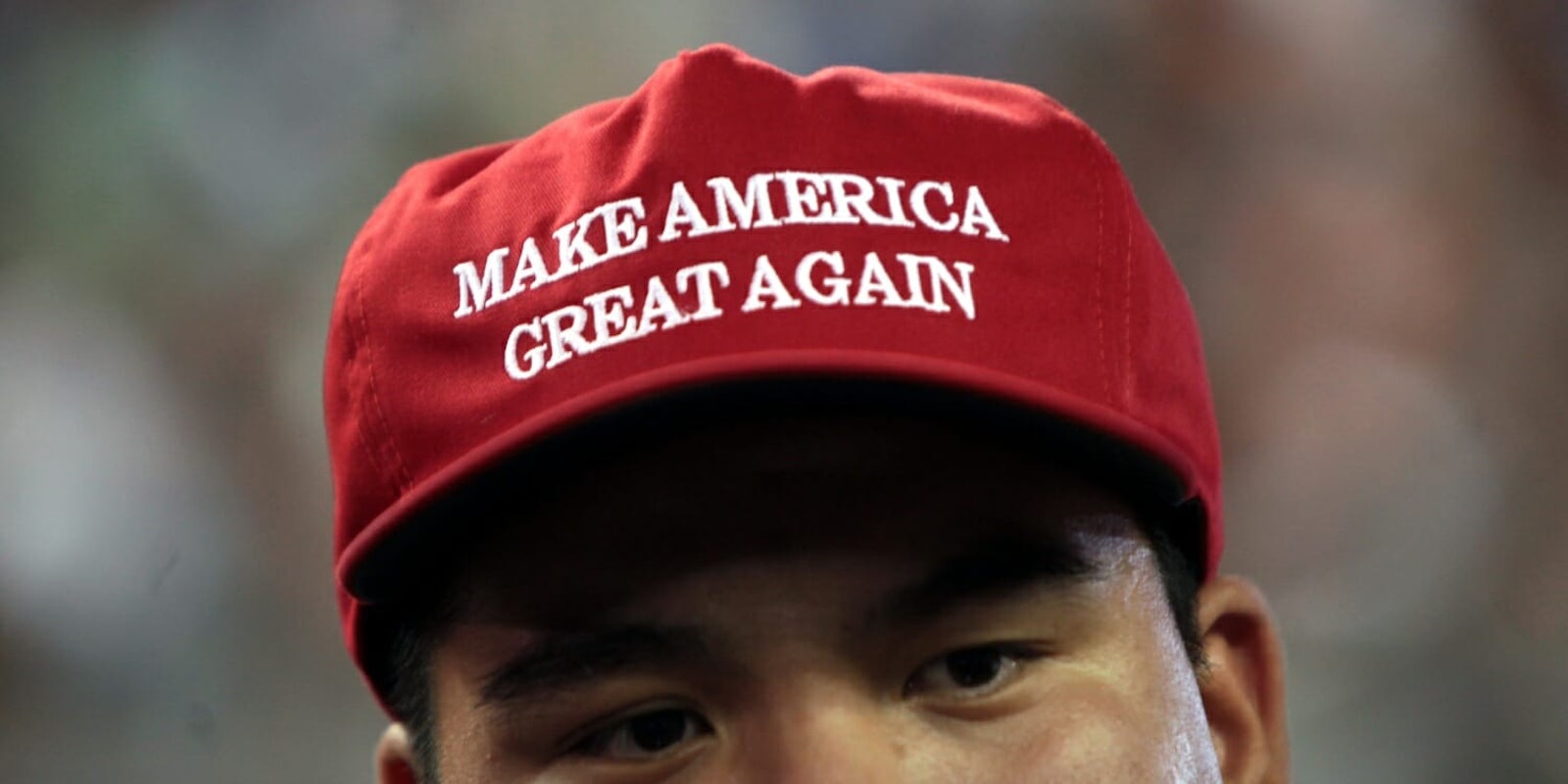Since Tuesday’s historic summit in Singapore, when President Donald Trump met and shook hands with North Korean dictator Kim Jong-Un, Trump has been patting himself on the back. His supporters are ecstatic, too.
As part of subsequent talks, North Korea agreed to denuclearize. For some conservatives, not only is the summit a diplomatic triumph—it’s a Trump triumph. The only thing that the president’s supporters can’t agree on is how, exactly, he did it.
Here are some ideas that are being promoted on the right.
Trump’s body language gave him the upper hand
Body language expert Chris Ulrich appeared on CNN to analyze footage from the summit. He said that Kim intended to take control, judging by his approach in the first handshake of the day, but that Trump established his command by placing a hand on Kim’s arm. Ulrich said this was proof that Trump was “in charge” when leading the dictator off stage.
A writer at conservative website the Daily Caller featured the clip in an article on how Trump deployed nonverbal techniques to dominate negotiations by putting the North Korean dictator on the back foot.
Trump’s businessman charisma won the day
Writing for the Telegraph, a British conservative newspaper, Tim Stanley hailed the summit as a “triumph of charisma over state diplomacy.” Pointing to the president’s “respect for strong men motivated by nationalism,” Stanley argues that Trump “gets where they’re coming from [and] he knows how to talk to them.”
Well, from belittling the North Korean dictator as “rocket man” in threatening Twitter rants to describing him as “a funny guy” post-summit, Trump has definitely deployed extreme tactics in dealing with Kim. Trump may be complimentary now, but charm did not pave the way to Tuesday’s meeting. Rather, it was a provocative war of words.
Trump’s brinkmanship brought North Korea to the table
Conservative Washington Examiner columnist Byron York praised Trump’s “new approach” of “maximum pressure and engagement” in contrast to previous presidents’ policies on the matter.
North Korea was hardly featured during the campaign trail but became a big issue following the dictatorship’s provocative ballistic missile tests, and Trump was forced to respond. York argues that Trump’s promise of talks, and his retraction of that promise when missile tests resumed, was key to baiting North Korea into concession. York then celebrates North Korea’s commitment to nuclear disarmament.
However, as far as the history of highly volatile U.S.-North Korean relations goes, the difficulty is less in coming to an agreement and more about having the dictatorship stick to it. In February 2012, under the Leap Year agreement, Pyongyang agreed with the Obama administration to dismantle its nuclear reactor in exchange for food aid. The deal fell apart within weeks.
This observation shouldn’t undermine the importance, potential or historical nature of the Trump-Kim summit and handshake—a symbolic first between the two countries’ leaders. But Kim now comes to the table having somewhat substantial nuclear and ballistic capability.
It was Kim’s boasts of success of recent ballistic testing that raised tensions with the Trump administration in the first place. Is it this perception of a position of strength, rather than cunning U.S. diplomacy, that brought the dictator to the summit? That’s one for the historians.


